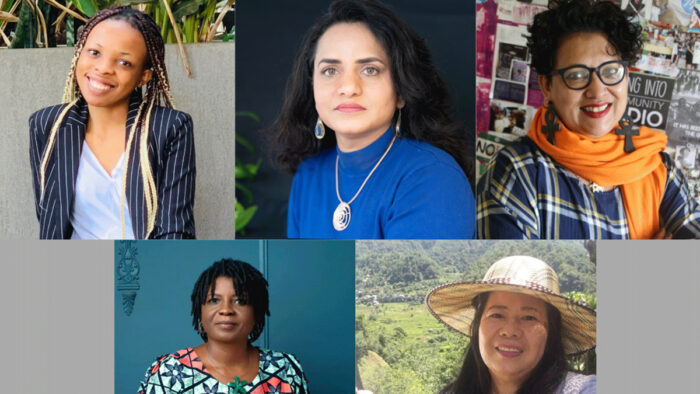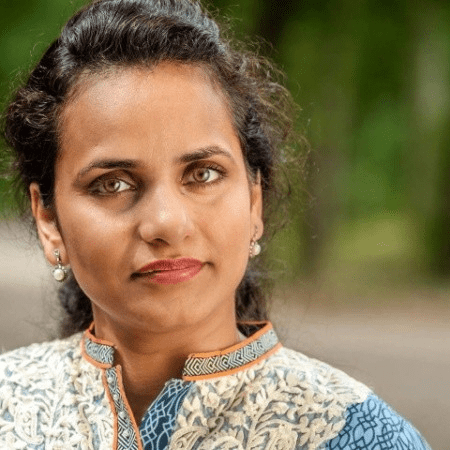Anila Noor (middle-top) is founder of New Women Connectors and co-founder of the Global Independent Refugee Women Leaders (GIRWL) network. She was selected, along with four other gender equality advocates, as an ambassador of the World Trade Congress on Gender. She wrote the following article as a contribution to the plenary session on “women in crisis, from diagnostic to solution.”
Women migrants and refugees are mostly viewed as passive recipients of migration and integration policies. When I was a newcomer myself in Europe in 2015, I realized how crucial it was to be involved in these issues because they are the root causes of gender inequality in the response to humanitarian crises. Shifting that paradigm and considering women as active participants is key to economic resilience.
Women are at greater risk during humanitarian crises because of their position: the social and political contexts in which they live do not recognize their unique needs. Women’s issues are left in the shadows. Most of the time, our traditional values condition us to be dependent on our male partner, father, brother, or son. As refugees and migrants moving to Europe, we become even more dependent on the men in our lives, because we don’t know how to explore market opportunities. It is about knowing your skills, knowing how to write a CV, how to apply for jobs. It is a full package that men acquire from an early age as they become aware of these opportunities.
Financial independence is the key to recovery for women migrants. But due to systematic inequalities and cultural barriers women face, they don’t have the same exposure to financial and economic issues. Women migrants’ matters should be addressed on the basis of understanding and recognizing how race, class and gender shapes people’s experience and access to opportunities. More resources should be invested in the dissemination of information on access to education and labour market inclusion.
However, many humanitarian, women-led initiatives are struggling to get funding. They lack visibility and opportunities for partnerships, while donor-driven projects have less impact as women are not involved in designing the strategies. We need more women-led research to investigate why there is still a lack of funding for women’s organizations, why we are still talking about women’s vulnerability and not about their resilience.
In the context of humanitarian emergencies, one crisis replaces another, and women’s issues become an additional element, but they are never at the core of efforts. However, when they are given the chance, migrant, refugee, and stateless women can be powerful agents of change, as evidenced by their resilience in overcoming terrible challenges and rebuilding lives and communities. How can we change the narrative and talk about women migrants and refugees not as victims, but as powerful, resilient leaders?
Our platform New Women Connectors aims to showcase the coping strategies of refugee and migrant women through self-representation. By involving migrant women groups on matters that directly impact them, we encourage women to see themselves as occupying the public stage. Through our many ongoing projects funded by the Asylum, Migration and Integration Fund of the European Union, and UNHCR, we deliver training to many stakeholders and partners including EU member states municipalities. We are aiming to create an ecosystem that helps them conduct research about meaningful participation and gender sensitization.
By addressing women migrants’ representation gaps in local, national, and regional decision-making spaces in Europe, and by improving their capacities, knowledge, and diplomatic skills, we can make migration and integration policies more inclusive and increase European societies’ resilience.
New Women Connectors is committed to the idea that migrant and refugee women deserve a seat at the table. This world needs more women leaders.

